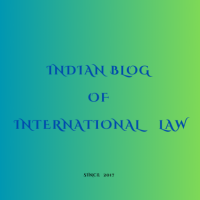[ad_1]
Karishma Ramchiary
“Is Kyoto Dead” is probably one of the most probed questions since the introduction of this unprecedented climate agreement, the Kyoto Protocol (Protocol). The International Court of Justice’s (ICJ) Advisory Opinion (AO) on the obligations of the states in respect to climate change answers this question in negative. As per the operative clause, the Court has opined that states parties to the Kyoto Protocol must comply with the applicable provisions of the Protocol. In this part of the blog, I will analyse what are these applicable provisions of the Protocol and what it means for the State Parties’ climate obligations.
Best described as the implementation wing of the obligations set forth in the UNFCCC, the Kyoto Protocol, 1997 is in itself unique, where developed countries and economies in transition committed for the first time to limit and reduce Greenhouse gas emissions with a set quantified targets, primarily following the ‘common but differentiated responsibility’. The commitments operated from two periods, first commitment period from 2008-2012 (a target up to an average of 5% emission reduction compared to 1990 levels) and second from 2013-2020 (at least 18% below 1990 levels). Recognising that there has been no third commitment period does not make the Protocol dead as the Protocol and its provisions are still in force.
In para 221 of its AO, the ICJ further prompted that these provisions help in the identification of the climate change treaty obligations and in assessing the compliance of committed states parties in emission reduction (non-compliance of the commitments will thereby constitute wrongful act). As the court noted “(t)he Kyoto Protocol remains in force and its provisions may still serve…to determine whether a State, during the relevant commitment period, has complied with its emission reduction commitments. Thus, non-compliance with emission reduction commitments by a State may constitute an internationally wrongful act.”
The obligations arising from the Protocol includes sustainable development, common but differentiated responsibility and respective capabilities (CBD-RC) (Article 10) and the leadership of developed countries in reducing emissions through funding and technological transfer (Article 3), concepts of equity and intergenerational equity, duty to co-operate among several others. The Court has opined that these obligations from the Protocol interplay and complement with the obligations in the UNFCCC and the Paris Agreement and is a part of applicable law for the States Parties to deal with climate change issues.
An interesting set of discussions on the Protocol revolved around the obligation of CBD-RC. Judge Sebutinde in her separate opinion voiced that the advisory opinion has downplayed the important obligation of CBD-RC by equating it to “equity” and failed to articulate the possibilities of legal consequences available to the injured state by the application of this principle (para 12). Judge Yusuf in his separate opinion resonated with the opinion given by Judge Sebutinde where he strongly emphasised the need to seriously regard the historical disparities and inequalities of the states, i.e., the recognition of the principle of CBD-RC in the existing climate legal framework (para 29). Judge Xue also argued on similar lines making a strong case and highlighting the importance of CBD-RC in the current climate framework (paras 62 and 69). The contrasting issue is that the two sets of opinion, i.e., the advisory opinion looks at CBD-RC as not an obligation in itself but as a set of standards that guides the interpretation of the climate obligations (para 151). On the other hand, the separate opinions mentioned arguably present the significance of the principle not only as a guiding mechanism for funding and technological transfer but as an integral obligation in the climate legal mechanism. The argument strongly supports the route of climate justice.
Additionally, the Court has also expressly opined that Kyoto Protocol is a legally binding instrument and non-compliance of the State Parties is an internationally wrongful act (para 221). As such, State Parties, in particular the 37 countries that had committed for a targeted emission reduction, may now be assessed on their compliance under the Protocol and may have to bear the legal consequences (reparations or compensations under Article 28 ARSIWA), in case of non-compliance during their commitment period. Thus, the Kyoto Protocol is not dead in legal sense and remains instrumental to understand the present climate legal framework in international law. An ambitious agreement for its time, the Kyoto Protocol is today looked as a legacy that proved global politics can have a consensus on an issue like climate change that may hopefully provide a ray of hope for the negotiations of a future legally binding climate instrument.
(Karishma Ramchiary is presently employed as Teaching Assistant at Faculty of Law, SGT University, Gurugram and is an international law enthusiast.)
Discover more from Indian Blog of International Law
Subscribe to get the latest posts sent to your email.
[ad_2]
Source link

